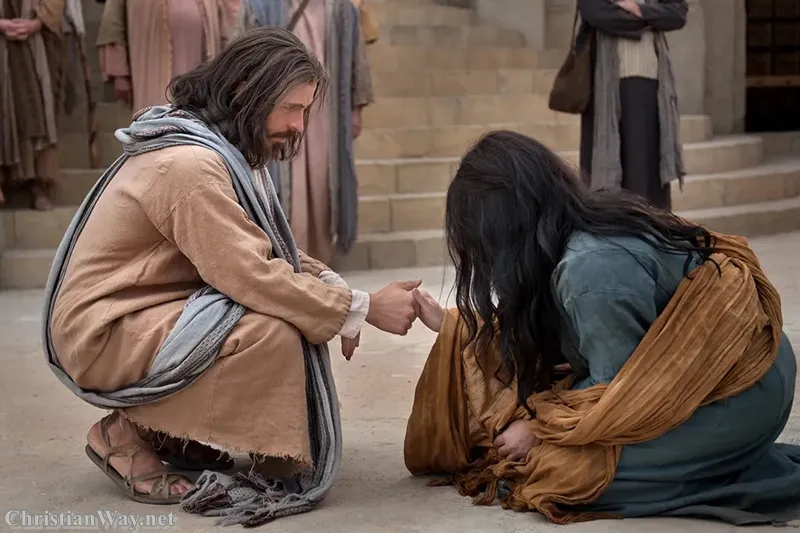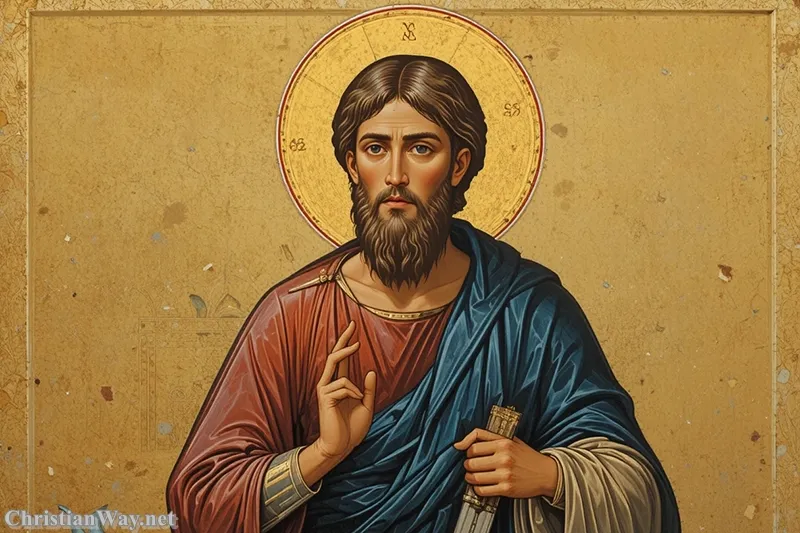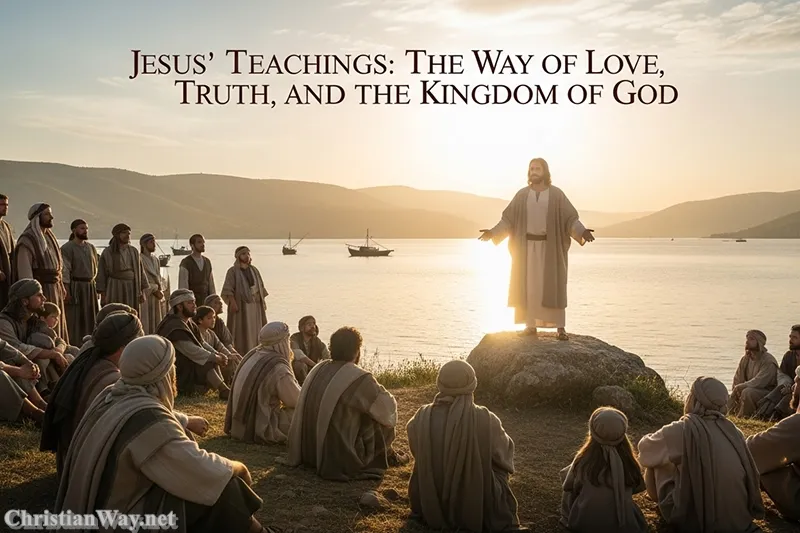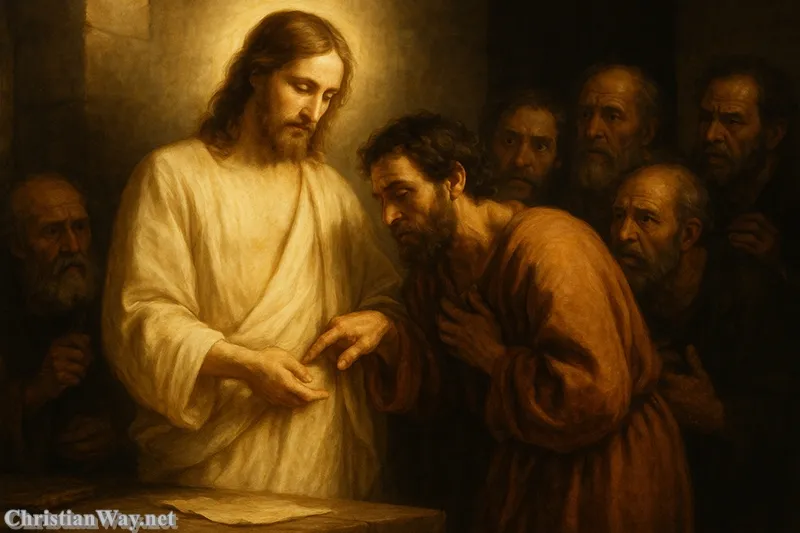Dear friends in Christ,
Every soul, at one time or another, wrestles with the burden of hurt — the sting of betrayal, the ache of injustice, the quiet pain that lingers in memory. These wounds shape us deeply, and sometimes they seem to define us. Yet into this brokenness, the Gospel whispers something both beautiful and challenging: “Forgive.”
Forgiveness is not an easy command. It asks us to go beyond what feels possible, to release not only those who have hurt us but also the bitterness that can imprison our hearts. And yet, at the very center of Christian faith stands a cross — the ultimate sign of forgiveness, where Jesus prayed, “Father, forgive them, for they know not what they do” (Luke 23:34).
To understand Christian forgiveness is to understand the very heart of God. It is not merely a moral duty or a social virtue; it is the divine movement of mercy that flows from the heart of Christ to every wounded soul. It heals the sinner, reconciles enemies, and brings peace to hearts that long for freedom.

In this reflection, let us journey into the mystery of forgiveness — not as an idea, but as a way of life shaped by grace, mercy, and love.
The Heart of Forgiveness: God’s Mercy Revealed
The Source of All Forgiveness
Forgiveness begins not with us, but with God. It is a gift we first receive before we can ever give it away. Scripture tells us, “The Lord is merciful and gracious, slow to anger and abounding in steadfast love” (Psalm 103:8). From the very first pages of the Bible, God reveals Himself as One who desires reconciliation — who seeks the lost, heals the broken, and restores the sinner.
When Adam and Eve turned away in disobedience, God did not abandon them. Even in their shame, He clothed them (Genesis 3:21). When humanity fell into violence and pride, God called Abraham to begin anew a covenant of mercy. When Israel turned from the covenant again and again, the prophets proclaimed God’s promise: “Though your sins are like scarlet, they shall be as white as snow” (Isaiah 1:18).
This divine mercy reaches its perfect expression in Jesus Christ. Every parable He tells about forgiveness — the prodigal son, the merciful father, the lost sheep, the unforgiving servant — reflects one great truth: God never stops loving us, even when we turn away.
Forgiveness as the Face of the Cross
The Cross is not merely a symbol of suffering; it is the living icon of forgiveness. There, Jesus bore the sins of the world and answered hatred with love, violence with peace, condemnation with mercy. The words He spoke in His agony — “Father, forgive them” — are not a distant prayer for others, but an eternal word for each of us.
On that Cross, all human guilt meets divine compassion. Christ did not wait for us to repent before forgiving us; His love was already there, waiting, offering itself freely. As St. Paul writes, “While we were still sinners, Christ died for us” (Romans 5:8).
Christian forgiveness, therefore, is not rooted in fairness or justice as the world defines it. It flows from grace — the undeserved, transforming love of God that makes new what was lost.
The Challenge of Forgiveness in the Human Heart
The Wound Within
It is one thing to speak of forgiveness and another to live it. When we are wronged, something deep within us resists mercy. We want recognition, apology, sometimes even revenge. The pain feels too deep to let go, and forgiveness can seem like betrayal — as if we are excusing evil or denying our own worth.
But forgiveness is not the denial of justice; it is the healing of the heart that has been wounded by sin — both the sin of others and our own. It is not forgetting, nor pretending the wound never happened; rather, it is allowing the grace of God to touch that wound, so it no longer controls us.
To forgive is to refuse to let evil have the last word. It is to declare, in the power of Christ, that love is stronger than hate, that mercy is greater than resentment, and that the heart of a Christian must mirror the heart of the Savior.
The Process of Forgiveness
Forgiveness often unfolds slowly. Sometimes it takes years. We may forgive in words long before our emotions catch up. But God understands this journey. He walks with us as we wrestle, as we weep, as we try to let go.
True forgiveness begins with prayer — not for justice, but for grace. Jesus teaches us to pray, “Forgive us our trespasses, as we forgive those who trespass against us” (Matthew 6:12). In this prayer, we are reminded that our own forgiveness from God is mysteriously tied to the mercy we show others.
Forgiveness is not something we achieve by strength of will. It is something we receive through the transforming work of the Holy Spirit, who softens the heart and renews the soul.
Forgiveness in the Teachings of Jesus
The Parable of the Prodigal Son
Few stories capture the essence of Christian forgiveness like the parable of the prodigal son (Luke 15:11–32). A son rebels, squanders his inheritance, and returns home in shame — expecting condemnation, but instead finding his father running to embrace him.
This parable shows us the heart of God: forgiveness that does not wait, love that runs toward the sinner. The father’s joy reveals that mercy is not reluctant; it is the very delight of heaven.
When we forgive others, we become like that father — extending mercy not because it is deserved, but because love demands it. And when we receive forgiveness, we are that son — humbled, restored, and clothed again in dignity.
Seventy Times Seven
When Peter asked Jesus how often he should forgive — “as many as seven times?” — Jesus answered, “Not seven times, but seventy times seven” (Matthew 18:21–22). In biblical language, this means forgiveness without limit.
To live this way is to imitate the infinite mercy of God. It requires humility, patience, and the daily grace to remember how much we ourselves have been forgiven. Every time we forgive, we participate in the divine life — we become co-workers with Christ in the work of redemption.
The Freedom Forgiveness Brings
The Chains We Break
Unforgiveness is a prison. It binds us to the past and poisons the present. We may think that holding on to anger protects us, but it actually keeps the wound open. Only forgiveness can set us free.
When we forgive, we hand the matter over to God. We let Him be the judge, and we rest in His justice, which is always mingled with mercy. This is why Jesus says, “Come to me, all you who labor and are burdened, and I will give you rest” (Matthew 11:28).
Forgiveness gives that rest. It breaks the cycle of resentment and opens the heart to peace. It allows love to breathe again.
The Healing of Relationships
Forgiveness does not always restore relationships to what they were. Sometimes boundaries remain necessary, especially when harm was deep. But forgiveness makes healing possible — within families, friendships, churches, and even nations.
Where forgiveness takes root, reconciliation can follow. This is the work of the Spirit, who makes enemies brothers, strangers neighbors, and sinners saints.
Living a Forgiven Life
Receiving Forgiveness
Before we can forgive, we must first receive forgiveness — from God and, often, from ourselves. Many Christians carry hidden guilt, feeling unworthy of mercy. But God’s forgiveness is not earned; it is offered freely through Christ.
In the words of St. John, “If we confess our sins, He is faithful and just to forgive us our sins and to cleanse us from all unrighteousness” (1 John 1:9). The Sacrament of Reconciliation in the Catholic tradition, and confession in many Protestant and Orthodox communities, is a profound expression of this truth. To kneel before God and hear the words of pardon is to feel the weight of sin lifted from the soul.
Becoming Instruments of Mercy
Once we have tasted mercy, we are called to share it. The forgiven become forgivers; the healed become healers. Jesus tells us, “Blessed are the merciful, for they shall obtain mercy” (Matthew 5:7).
To forgive in daily life — in family conflict, in community division, in political tension — is to bear witness to the Gospel. It is a way of saying to the world: God’s love is stronger than your hatred; God’s grace is greater than your sin.
Forgiveness, lived out in ordinary acts of patience, kindness, and understanding, becomes a living sacrament of God’s mercy in the world.
Reflect and Pray
Forgiveness is not a single act, but a lifelong calling. It is the rhythm of the Christian life — receiving mercy and giving it away again. It is the way of the Cross and the path to resurrection.
If you find it difficult to forgive, begin with prayer. Ask God for the grace to see others as He sees them — broken, yes, but beloved. Ask for the courage to release your pain into His hands. And remember: forgiveness is not forgetting; it is choosing love over resentment, peace over anger, mercy over vengeance.
“Be kind to one another, tenderhearted, forgiving one another, as God in Christ forgave you.”
— Ephesians 4:32
May your heart rest in the peace of that forgiveness. May you find healing where there was hurt, and grace where there was bitterness. And may your life reflect the mercy of the One who has forgiven us all.
May the peace of Christ dwell richly in your heart, and may His mercy teach you how to forgive as you have been forgiven.
— Fr. John Matthew, for Christian Way





